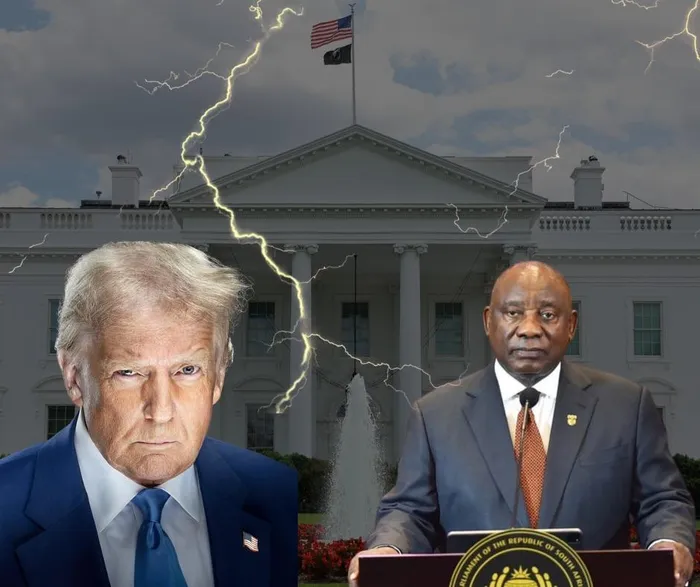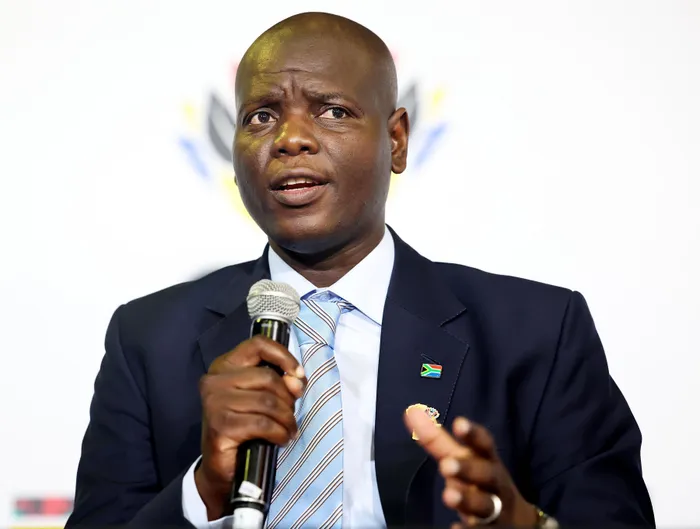Solidarity's US visit is 'divisive and anti-democratic', Minister Lamola says

South Africa's fractured relationship with the US has been further aggravated by the Solidarity Movement's actions, government argues.
Image: IOL Graphics
Trade union Solidariteit (Solidarity) and civil rights organisation AfriForum have sent another delegation to the USA in what is being labelled as a further attempt to improve South Africa’s fractured diplomatic relations with that country, amid punishing 30% tariffs on local goods.
This comes as President Cyril Ramaphosa departs for New York for "crucial" trade and investment talks with key players in the US.
Solidarity claims that the purpose of its visit, which will see the delegation engage with various US government role players at the federal and state levels in the coming weeks, is to advocate for South Africa, its economy, and its working population. On Sunday, it revealed a proposed trade framework for the two countries.
However, given that this visit is not in any way affiliated with or endorsed by the South African government, the delegation has been widely condemned. A further sticking point is that previous US visits have seen Solidarity criticise South Africa's affirmative action laws as well as the Land Expropriation Act.
South Africa’s Minister of International Relations and Cooperation, Ronald Lamola, over the weekend labelled the Solidarity Movement’s actions as divisive and anti-democratic.

International Relations and Cooperation Minister, Ronald Lamola.
Image: GCIS
“Let me state this plainly: I condemn Solidariteit’s divisive rhetoric in its totality. It is divisive, it is anti-democratic, and it has no place in our sovereign nation,” Lamola said on X.
“The Afrikaner community is a fundamental part of South Africa's unity and diversity, one group among many that make our nation strong. They are not, and will never be, some separate, carved-out entity. We are one people under one flag.”
The minister reiterated that his duty was to advance the interests of all South Africans on the global stage.
“These desperate attempts to splinter us only weaken our hand. We will not be distracted from securing and promoting the national interest of the nation.”
In an interview with the SABC over the weekend, Lamola further described the Solidarity delegation as a distraction that aimed to send a negative message about South Africa to the world, and which had already led to a souring of the relationship between the two countries.
“It is against that background that we continue to engage the federal government and with the various (parties) at a state level and also at the local government level, so that we will continue to send the correct message of South Africa as the true representatives of the South African people, mandated by South Africans,” Lamola said.
The political impasse between South Africa and the USA has no easy solutions. South Africa has taken a moral stance against US ally Israel’s genocidal acts in Gaza, and is also seen as aligning with other countries that the US perceives as hostile, including Iran and Russia.
Solidarity believes it is in a better position than South Africa’s government to mend relations with the US.
However, the union claims its attempts to engage with the South African government have been unsuccessful. Solidarity said it has sent numerous letters to government, including President Ramaphosa, in an attempt to engage in discussions about the diplomatic crisis as well as its consequences and possible solutions.
Proposed trade framework
On Sunday, Solidarity announced it had unveiled a proposed trade framework between South Africa and the USA, which attempts to address the political and trade conditions for a possible agreement between the two countries.
Solidarity's chief executive, Dr Dirk Hermann, said the proposals were developed from various discussions with representatives of the US government as well as from US President Donald Trump’s executive order.
He said the trade framework was sent to both presidents on August 1, with Ramaphosa “merely acknowledging” it and Trump agreeing to talks at various levels.
Solidarity’s head of international liaison, Jaco Kleynhans, believes the SA government’s diplomatic access to the US government is very limited.
“We would like to recommend to the South African government to enter into talks with Solidarity. We probably have better access, and we understand very well what the Americans want. We are not the enemy; we want to find solutions for the country. The dispute with the government is costing our members their jobs,” Kleynhans added.
IOL News